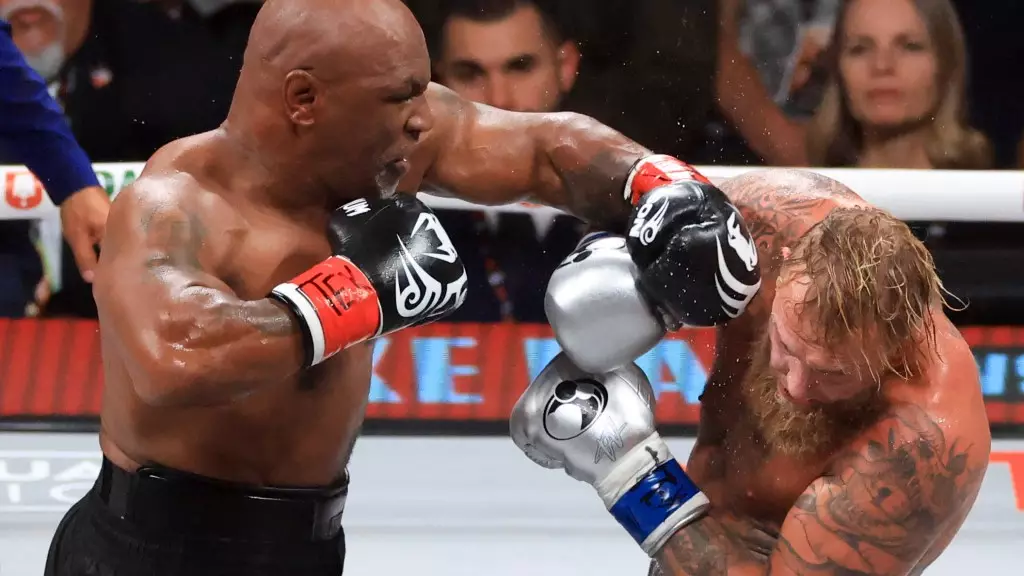The recent boxing match between 58-year-old Mike Tyson and the younger Jake Paul has ignited discussions about the safety and viability of aging athletes in high-intensity sports like boxing. This matchup illustrated the contrasting generational dynamics at play in the sport. While Paul, representing a new wave of boxers driven by social media fame and business acumen, showcased his evolving skill set, Tyson embodied the nostalgia of boxing’s golden era. Despite Tyson’s loss by unanimous decision, the event sparked significant debates, particularly around health and performance standards for older fighters.
UFC commentator and podcaster Joe Rogan expressed his apprehensions before the fight, voicing valid concerns regarding the toll such a match could take on Tyson’s health. His worries reflect broader issues within combat sports, where athletes are often celebrated for their longevity yet face substantial risks as they age. Rogan highlighted that, despite Tyson’s loss, he appeared relatively unscathed, which was a relief for fans and observers alike. The real victory might have been in Tyson’s ability to compete without suffering serious injury, emphasizing the importance of health over accolades in such combative environments.
Jake Paul’s involvement in boxing has elicited mixed reactions, positioning him as both a controversial figure and a significant draw for fans unfamiliar with traditional boxing narratives. In the aftermath of his bout with Tyson, he claimed to have protected the veteran fighter throughout the rounds. This manipulation of dynamics during the fight might bring into question the authenticity of such matches. Critics might argue that this approach undermines the competitive spirit associated with boxing. Yet, Rogan’s acknowledgement of Paul’s business acumen and his contribution to attracting new audiences to boxing indicates that Paul could be reshaping the sport’s fanbase for the future.
The juxtaposition of Paul’s modern approach with Tyson’s historical legacy prompts an essential discussion about the future of boxing. The sport finds itself at a crossroads, where entertainment value often clashes with competitive integrity. Athletes from previous generations, like Tyson, whose skills were honed in a vastly different era, are confronted by a new breed of fighter motivated by social media presence and spectacle. This raises fundamental questions: Are we witnessing a deterioration of traditional boxing values? Or are we simply observing the evolution of a sport adapting to new realities?
As Joe Rogan articulated, while it is incredible to witness aging icons like Tyson remain in the ring, concerns regarding their well-being cannot be overstated. Both fighters have played pivotal roles in the story of boxing, albeit from very different angles. Tyson’s journey offers inspiration, while Paul’s presence has revitalized interest in the sport. Nevertheless, the boxing community must focus on ensuring that aging fighters are safeguarded and that their participation results in positive outcomes. As this sport evolves, maintaining a delicate balance between entertainment and athlete welfare will be crucial for its sustainability.

